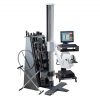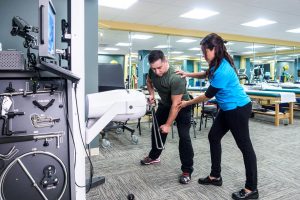
Why Patient Relationships Matter for Clinical Outcomes
Treatment GuidelinesMany patients who are assigned to physical therapy have little to no background in athletics or, in some cases, even exercise. In order to build a positive relationship with the patient, you need to establish your role as a guide with trust and open communication.
Building a positive relationship
Many patients who are assigned to physical therapy have little to no background in athletics or, in some cases, even exercise. In order to build a positive relationship with the patient, you need to establish your role as a guide with trust and open communication.
It’s important that you emphasize that you are there to guide them through the process. Not all exercises will be easy for them to perform and some may even cause a bit of discomfort. It’s up to you to build a positive relationship so that they know they can rely on you to keep them on track.
Establishing trust
As a rehab professional, establishing a sense of trust is extremely important. A patient who has little experience with rehabilitation may become fearful if they begin to experience pain or discomfort.
In order for the patient to begin to fully become accustomed to the therapy process, they must trust their therapist and be able to communicate with them what they are feeling during each exercise.
Working through the obstacles
Patients can sometimes experience obstacles during their physical therapy. As a clinical professional, it’s up to you to help the patient stay on track.
Patients can sometimes be so afraid of hurting themselves or experiencing pain that they stop moving forward. In cases like joint replacement, one of the biggest obstacles can be trusting the joint to bear their weight or perform correctly. Not only must they learn to trust the healing process, they must learn to trust you as a provider of care.
Encourage and strengthen
During the healing process, some patients may become discouraged if their progress isn’t moving forward as quickly as they expected. It’s up to you to continue to encourage them. Positive encouragement can do wonders to boost the morale of a patient during physical therapy. It will give them the drive they may be lacking to work through the obstacles they face.
As a patient progresses through the healing process and they begin to regain their strength, encouragement can keep them focused on continuing their exercises after the rehab time is over.
Many patients often mistakenly believe that their healing it complete when physical therapy ends. This is far from the truth. Encouraging a patient to continue home exercises after their therapy ends allows them to continue to strengthen their body as a whole, not just the injured area.
Good patient relationships promote clinic growth
Doctors recognize when a patient gets positive outcomes from therapy. If you want to be at the top of their referrals list, you need to deliver outstanding care and customer service to your patients. You can achieve that by building positive relationships with them.
At the end of the day, you want to provide the best level of care to your patients. That means going the extra mile and building trust and rapport with each person you treat. Not only will it improve their clinical outcomes, but it will also make your role as a therapist that much more rewarding.





